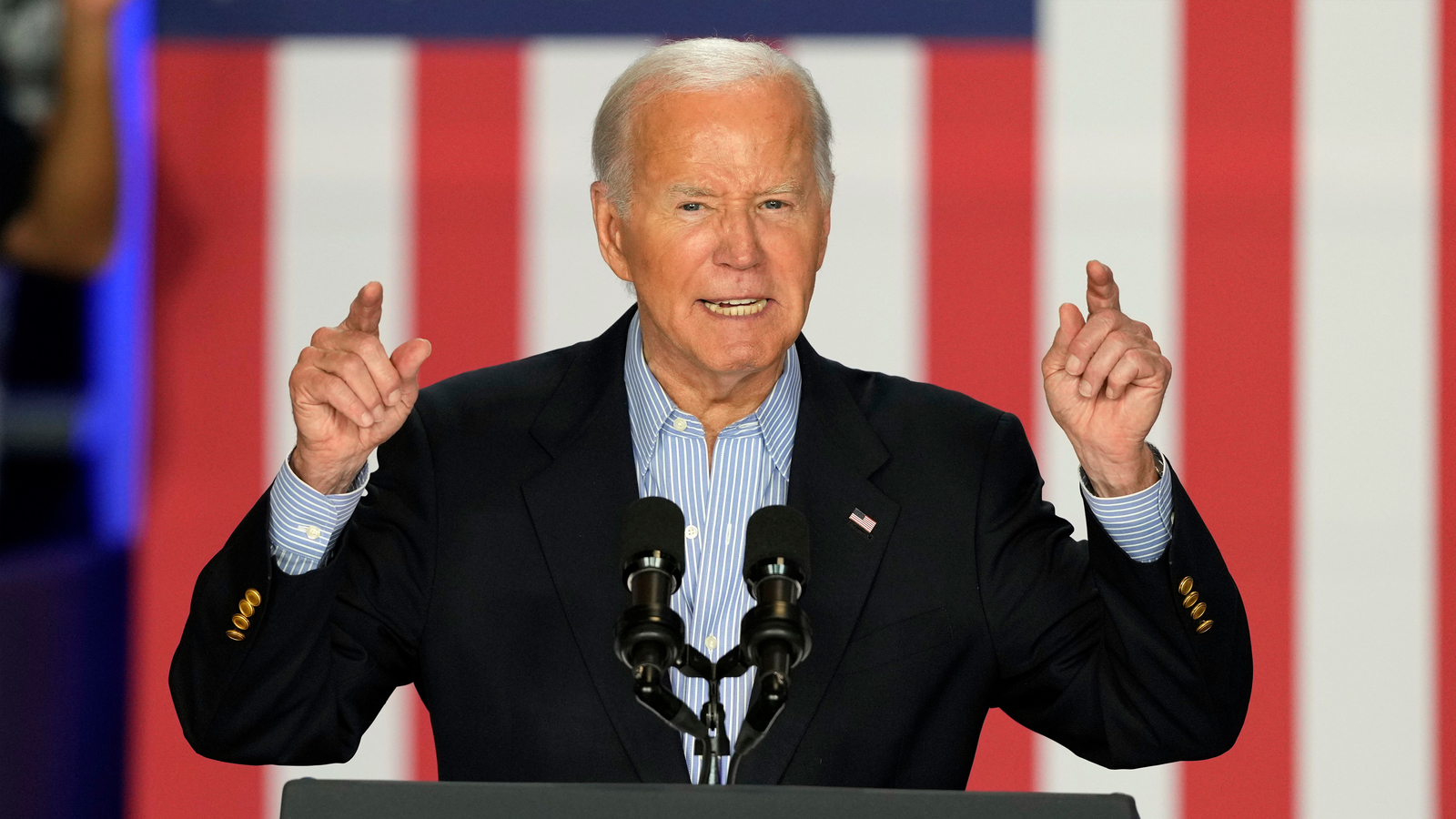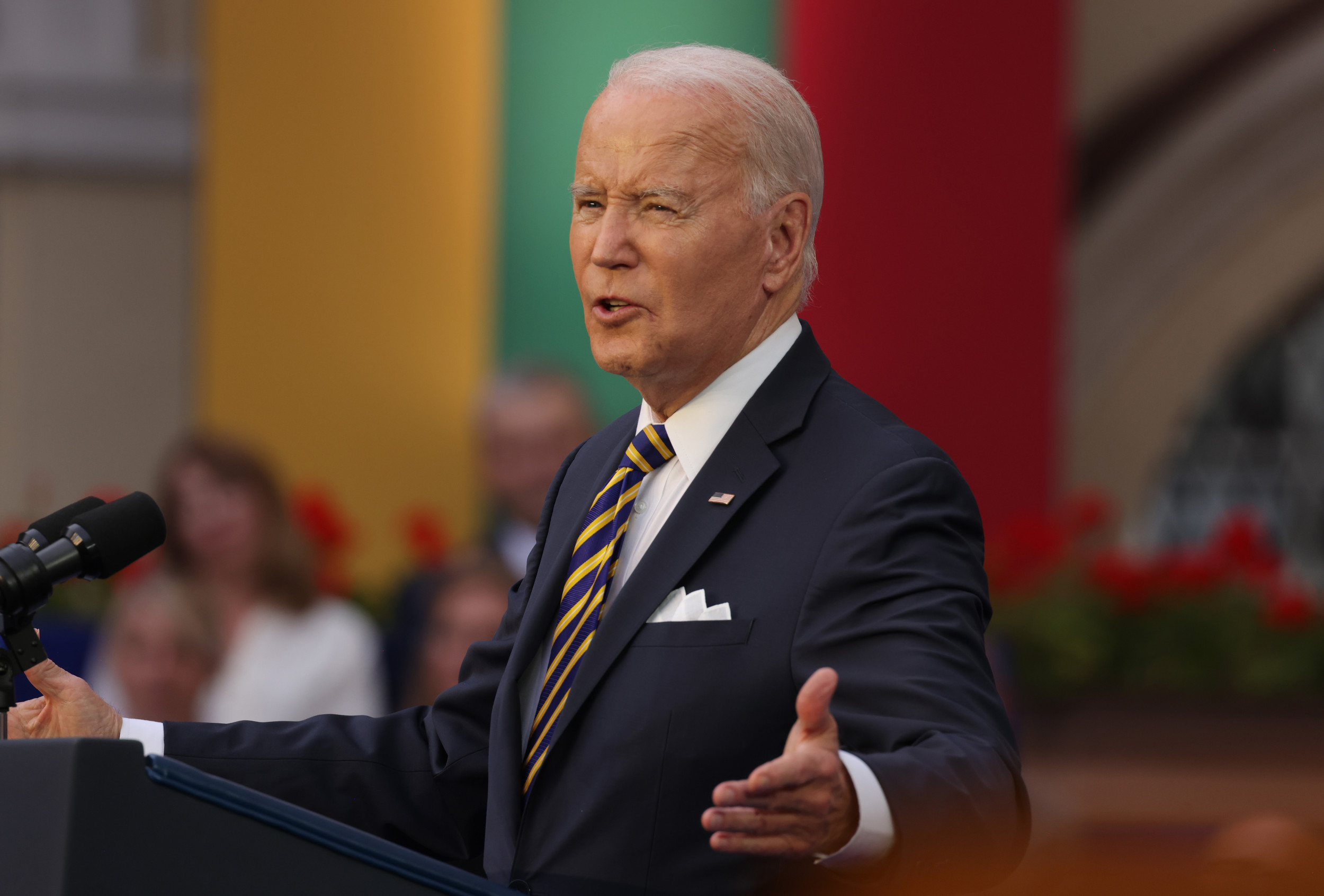Biden’s Commitment to NATO

Biden nato speech – President Biden has repeatedly affirmed his unwavering commitment to NATO and its principles of collective defense. He believes that the alliance remains indispensable in safeguarding the security of its members and promoting stability in Europe and beyond.
Collective Defense
Biden firmly believes in the importance of collective defense, a cornerstone of NATO’s founding treaty. He has emphasized that an attack on one NATO member is an attack on all, and the United States is fully committed to defending its allies against any threats.
In his speech, President Biden reaffirmed the strength of the North Atlantic Treaty Organization (NATO), an alliance of 30 countries committed to collective defense. The organization, which includes prominent members such as the United States, the United Kingdom, and France ( NATO members ), has been instrumental in maintaining peace and stability in Europe since its inception in 1949.
Biden emphasized the importance of NATO’s unity and resolve, particularly in the face of Russia’s ongoing aggression in Ukraine.
Evolving Threats
Biden recognizes that the nature of threats to NATO has evolved over time. He has highlighted the growing challenges posed by cyberattacks, hybrid warfare, and the rise of new technologies. He has emphasized the need for NATO to adapt and modernize to effectively address these evolving threats.
Biden’s speech at the NATO summit was a clear and forceful statement of America’s commitment to the alliance. He emphasized the importance of unity in the face of Russian aggression, and he called on NATO members to increase their defense spending.
Read more about Biden’s speech here. The speech was well-received by NATO leaders, and it is expected to help strengthen the alliance.
NATO’s Response to Russia’s Aggression

In the wake of Russia’s annexation of Crimea and military intervention in eastern Ukraine, NATO has taken significant steps to strengthen its collective defense and deter further Russian aggression. These measures include increasing the number of troops stationed in the Baltic states and Poland, conducting more military exercises, and upgrading air and missile defense systems.
The implications of Russia’s aggression for NATO’s future are profound. The conflict has exposed the fragility of the post-Cold War order and raised questions about the future of European security. NATO’s response to the crisis will shape the future of the alliance and its role in the world.
NATO’s Response to Russia’s Aggression
NATO’s response to Russia’s aggression has been multi-faceted. The alliance has increased its military presence in the Baltic states and Poland, conducted more military exercises, and upgraded air and missile defense systems.
- In 2014, NATO deployed four multinational battlegroups to Estonia, Latvia, Lithuania, and Poland.
- In 2017, NATO increased the size of the battlegroups to battalion size.
- NATO has also conducted more military exercises in the Baltic region, including the largest exercise in the region since the end of the Cold War, Exercise Saber Strike 18.
- NATO has also upgraded its air and missile defense systems in the region, including the deployment of the Patriot missile system in Poland.
Implications of Russia’s Aggression for NATO’s Future
The implications of Russia’s aggression for NATO’s future are profound. The conflict has exposed the fragility of the post-Cold War order and raised questions about the future of European security.
- Russia’s aggression has led to a reassessment of NATO’s role in the world.
- The conflict has also raised questions about the future of the post-Cold War order.
- NATO’s response to the crisis will shape the future of the alliance and its role in the world.
NATO’s Role in the Future of European Security: Biden Nato Speech
NATO’s role in ensuring the security of Europe remains paramount in the face of evolving threats. As a collective defense alliance, NATO has consistently safeguarded the stability and prosperity of the Euro-Atlantic region. Looking ahead, NATO must continue to adapt and strengthen its capabilities to meet the challenges and seize the opportunities of the future.
Challenges Facing NATO
In the coming years, NATO will confront a range of challenges that will test its resolve and adaptability. These include:
- Russia’s aggression: Russia’s illegal annexation of Crimea and its ongoing destabilizing activities in eastern Ukraine pose a direct threat to European security.
- Terrorism: The threat of terrorism remains a significant concern, with groups such as ISIS and al-Qaeda continuing to operate in Europe.
- Cyber threats: Cyberattacks are becoming increasingly sophisticated and pose a growing risk to critical infrastructure and national security.
- Climate change: Climate change is exacerbating security risks, such as extreme weather events and resource scarcity.
Opportunities for NATO, Biden nato speech
Despite these challenges, NATO also has a number of opportunities to strengthen its role in European security. These include:
- Strengthening partnerships: NATO can enhance its effectiveness by deepening partnerships with other organizations, such as the European Union and the United Nations.
- Investing in new technologies: NATO must continue to invest in new technologies, such as cyber defense and artificial intelligence, to stay ahead of evolving threats.
- Expanding its reach: NATO can expand its reach by engaging with new members and partners, particularly in the Western Balkans and the Middle East.
NATO’s Key Objectives and Priorities
To meet the challenges and seize the opportunities of the future, NATO has identified a number of key objectives and priorities:
| Objective | Priority |
|---|---|
| Defending against Russia’s aggression | High |
| Combating terrorism | High |
| Countering cyber threats | High |
| Addressing climate change | Medium |
| Strengthening partnerships | Medium |
| Investing in new technologies | Medium |
| Expanding its reach | Low |